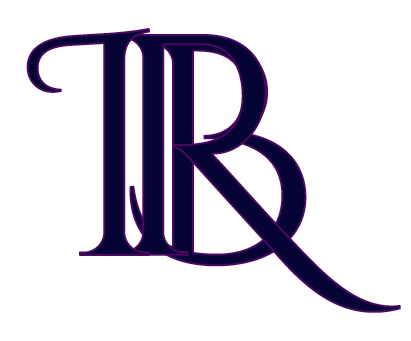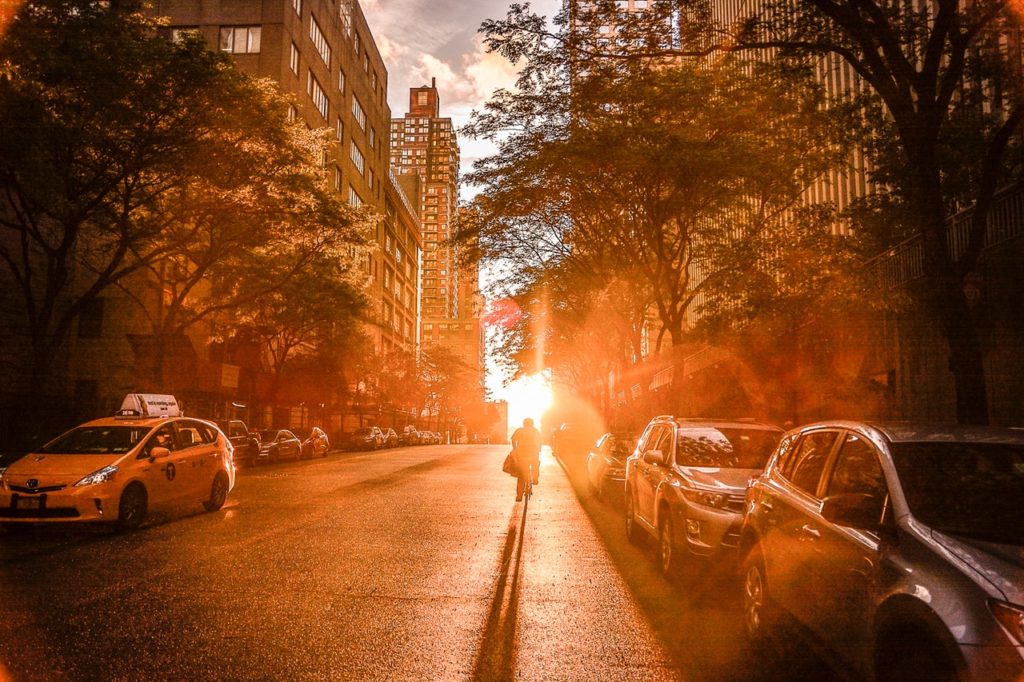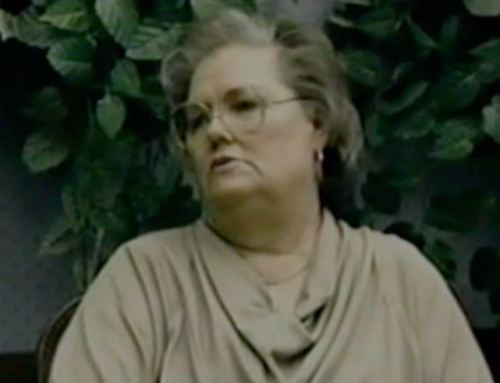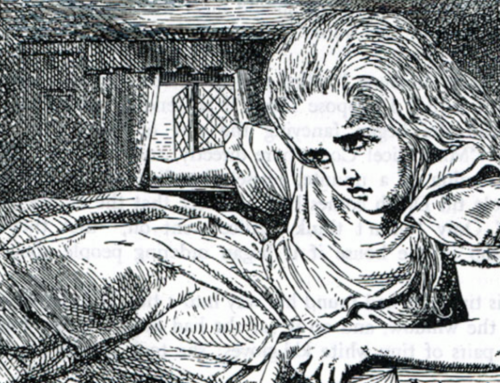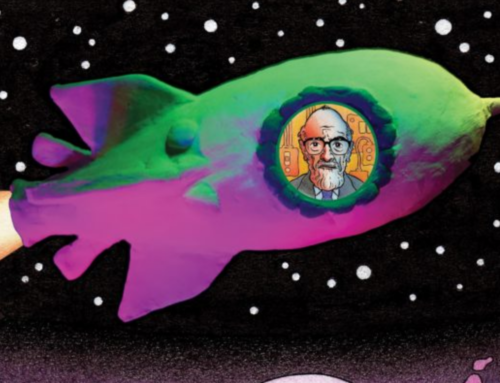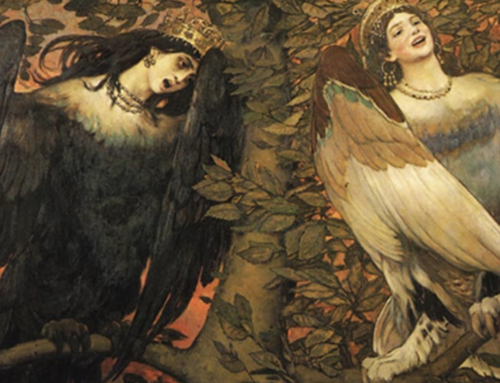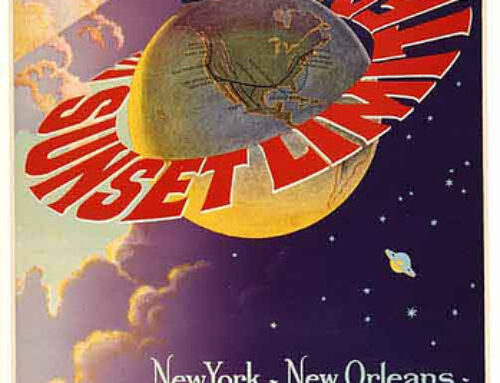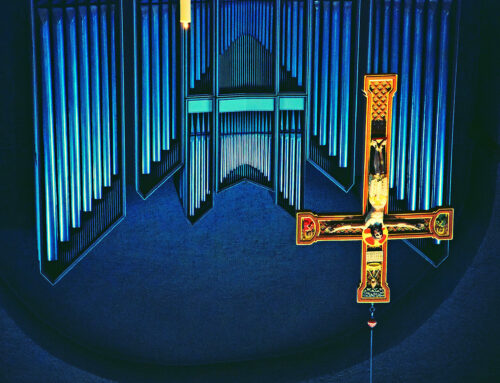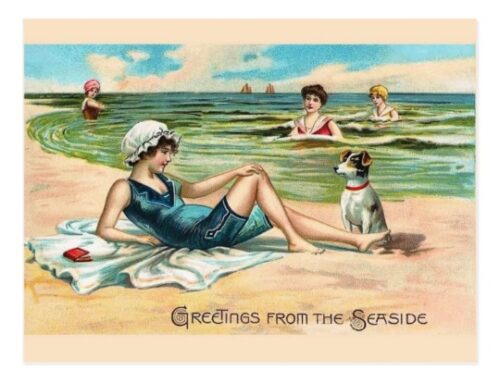People sometimes ask, for fun at a bar, or boredom on a long journey, a silly question. “Gun to the head – Lose your sight or lose your hearing?” My answer was always hearing. I can live without bad music in malls, old-lady chatter in the deli, the careful rustle of plastic wrappers in movies, babies yelling in the doctor’s office, men howling like cats outside at two in the morning. I’m a person who wears earplugs at gigs. But of course, the cosmic joke was on me.
It’s my sight that’s going out.
I loved art, trancing into the depth of the Seagram Rothkos in their blind windows of blood reds and brained maroons, vibrating into a part of me I turn away from. Peering into the murk of a Turner tide that chalks itself over with delicate lids, floaters in pale purple on the oily line of a silver sea. The certainty of a rust vein of the dark marble slab in a midnight bathroom in a cooling tub, shivering with the day’s new words on my skin, the taxis veering their lights across the water to the ceiling, falling upwards.
Most important though, was the red-black of sure prose on a white electric screen, cords of color thread as my sight tires quicker than my brain. I am a writer, and I write every day. The only sound I need is the tap of my nails on the keys, the window that rattles when the trees shush outside. Or maybe a sticky reference book opening on a mid-wood grain, the lick of the turned page, coffee rings and dirty fingers – not mine – as I trace old prints of landscapes and maps and intense, searching faces. Eyes that no longer exist, long done away with. These things, I miss.
Walking the park with the dog, I noticed a plastic bag on a reed, flapping in the breeze. I was ten feet away when I realised it was a heron. Another day, a stack of sticks made the shape of an injured crow, scattered when the mutt grabbed them in his mouth and pulled my wood bird apart. Through birds and bags and dogs, I wondered, what’s wrong with me?
An eye test was booked when I started getting headaches.
The puff of air on my eyeball. Red veins planted in black like tubers in soil. The ophthalmologist stings my iris with cruel dye. She’s nervous. It’s not anything to do with the eye itself, she says, but the eye is a stalk of the brain.
My mind has decided to blind me, and they have no idea why.
Am I depressed?
We decide on France and Spain as soon as I know for sure. I desperately need to stockpile what I thought I could return to. I take myself to the Louvre alone, to walk through the Babylonian gates one last time, sliding a hand along the beasts that meet me there, they purr cold. I bid farewell to the ridiculous colors of Napoleon’s apartments, the tasty twists of shiny grapes and snakes cut into plaster ceilings. In Spain, I drag myself to a scorching bullfight to view from the heights of the Maestranza the bright gold sand absorbing burnt gore from a glossy bull, death blistering against the wet pink of the torero’s suit. Later, feral cats all spikey fur like bark slink into dry fountains, rotten oranges under my feet a turgid yellow, white blossoms blow across the cave of a navy sky. The stars we can see, says John, are already blind. Their light is history.
John. Each mole and freckle and muscle and nail. The yellowed tooth when he smiles. His handsome fingers and ugly toes. Him at twenty, winking from a photo on my desk. Old books, his and mine, mingling on a shelf, dog-eared and burst with spilt tea and damp and love. The shadow of rain on whitewashed walls. I stack these memories like photos in a box for as long as they will stay in there, dry and clean and warm. But memories are not strong for me. They fade and mix fast and lose their consistency, like dipped paint on discarded brushes shoved into water jars, stood on a window sill, a pale morning glow wasting the hue. I dream the imposters, then they follow me when I wake, strange hybrids writing over what I hold close until I’m not sure my mother’s face isn’t Lee Remick’s in Days of Wine and Roses, with her raincoat wide and her bangs all pushed to one side.
I forget the way that colors are put together in the trees in fall from the windows at BG, where we sat this time last year drinking a second bottle of seriously good Chilean wine from thin wide glasses at three on a Tuesday when John should have been at a management thing uptown. My god, we were drunk.
I call John one night late when he is away for work and the clatter of rain has startled me from sleep to have him describe the quilt on the bed that we bought in the Hamptons two years back. So sure I am that it’s morphed into my childhood comforter that I weep uncontrollably when he assures me it’s lilac with tiny arrows in grey, just as I thought.
Why? Why cry? He’s almost laughing at me.
Because that means the one I grew up with, I have no idea about anymore.
By the winter, it’s a squint grey, all shapeless, weightless, plain. Christmas is torn like strips of magazine paper under lights, blending TV screens, screaming bright boxes, digital mouths saying their lines. Circles of uniform brown and white is food on plates. Everything smells the same: one big trestle of egg and gravy and sugar. I drink neat gin and dab some behind my ears. It takes the smell out of my nose like mentholatum in a morgue.
March, I make out a flock of birds that moves like ink lines on dark paper behind the tree I know must bend outside my window, but the squirrels are lost. I hear their chick-chicking, stumbling on bark. I imagine their stiff tails scrubbing my winter roses bare, bright petals on the deck where John brings peanuts sometimes, squatting down in sandals and jeans, thighs full in denim, a boy’s face turned to the sunshine watching; open, good. I hear the spit of his smile. It’s all I have.
I can’t depend on the shushing leaves to block out my world. I have a clunky sight-impaired app for dictating, listening to the thickness of my voice all day, croaking its reluctance to be heard and the anger and the loss marking my writing with too-obvious phrases, self-conscious structure erecting itself unwanted on top of my delicate letters. Adobe Garamond, my disappeared friend.
Maybe I can type without the robots, I think, but when I listen back, the thing says, “Wgwb u qwbt iyrausw…” in its graceless Palo Alto tone, and I realise I’ve just typed over six thousand words with my index fingers not over the F and the J, but the D and the H. “When I went outside…”
I’m outside. I cannot look in.
Every afternoon, my eyes need to shut down. The effort required for even four hours of my usual eight or nine swells the balls out of the sockets. Sometimes I think about having my eyes surgically removed, like war-shot limbs that turn black in the night. “It’s no use, kiddo, they have to go!” They would pop out like gelatinous ice-cream lumps, completely willing to fall into a kidney dish for incineration. They make diamonds from human ashes, these days, don’t they? I could get a pair of huge pink jewels that glitter and twirl inside my holes instead, just for fun. When I go to the shops, I could twinkle my eyes at people and scare the bejesus out of them. “Bag?” the woman would say.
“Oh, yes please!” Full face to the cashier, sparkle, sparkle, flutter, twinkle, “Three should do it.”
An intake of breath from more than one person. An old lady’s powder and rouge would exclaim, “Well, I never!” Children, the aggravating ones, shall be turned away from the freak into their mother’s skirts, suddenly sullen and worried. I won’t see their concern, only estimate their stillness at distance, but I can fantasize.
Smiling graciously, I would say, “And here’s my loyalty card.”
I walk up three flights to the opticians with John, gripping the gnarly wood, curving inwards. I take the glasses off my face, my nose eases up. They have this bin where you can dispose of them, for African children. It’s on the right of the desk as soon as you walk in. “Are you sure?” he says, and I thrust them in his hand. It’s time. “Chuck ‘em,” I say. Last night, I could only read three words of my book. The words were, “they do. Nothing.” I took it as a sign. I walk away so I don’t hear the crunch of plastic when he drops them in. Someone is tuning a piano above us, I hear the note augmenting, sharper…sharper.
I see a flash of Old Blind Gus who came to tune my grandmother’s Steinway in Orange. He’d marched with John Lewis across the Edmund Pettus Bridge in 1965. It was his only story. He’d say, “Don’t get no far that day, ‘cept we took America.” Then he’d lean his white cane on the side and play his versions of old showboat tunes for four hands standing up, pumping the pedals in his wide-legged pants, transposing every now and again to check the sound. He’d tell us about Baton Rouge, where he was from, and how it wasn’t any place for a black fella like himself. I guess that’s where he lost his sight, but he never said. Until I was a good while into childhood I believed there was a state called Wheezy Anna because of Gus. He’s the only blind person I ever met.
John offers to read to me the first night after, putting aside his Bill Bryson for me. He says “tomayto” and “oregno” and “speshialty” and “ow-el”. I’m reading a period piece set in Yorkshire, many thee’s and thou’s. After a minute, I say please stop.
I dream that night that Jane Eyre is a tiny Somali child, wearing my huge glasses and reading my F and J gobbledegook from a chalk board.
My cell wakes me. A charity for the sight impaired wants to know if I would like to come to a session to learn about using a symbol cane.
I don’t know what a symbol cane is, but instead, I ask who told them I needed one.
They can’t say.
Never call again, I say, hang up, burst into tears.
I’m furious at John, but mainly because he’s not there.
I write for an hour before I have coffee these days. Caffeine seems to dilate my pupils, and makes me sensitive to light. I have to have this struggle every day with myself, which is worse, the itching pain in my head from lack of coffee, or the scratch of the cornea faced with the fuzzy spread of morning sun over my lap as I drone on into the app like a senile academic at a bus station. I detest my own voice without coffee.
So now I am considering hiring ‘a girl’, someone doing a PhD nearby, dictation with pen to paper from a chaise longue perhaps, but how can I trust anyone with my thoughts so unformed, before the edits and deletions, and self-doubts? Yes, I know, books were read aloud until less than two hundred years ago, get over myself, etc. ad infinitum, ad nauseam, ad lucem.
But I am a writer, and silence was my room, and the wind was my house, and now my ears have won the fight and conquered my eyes and taken their territory, and I am forced to live in a world of sound, a newly-occupied state inside a quiet body, a rendition of a life, transposed.
Eliot Bryter

